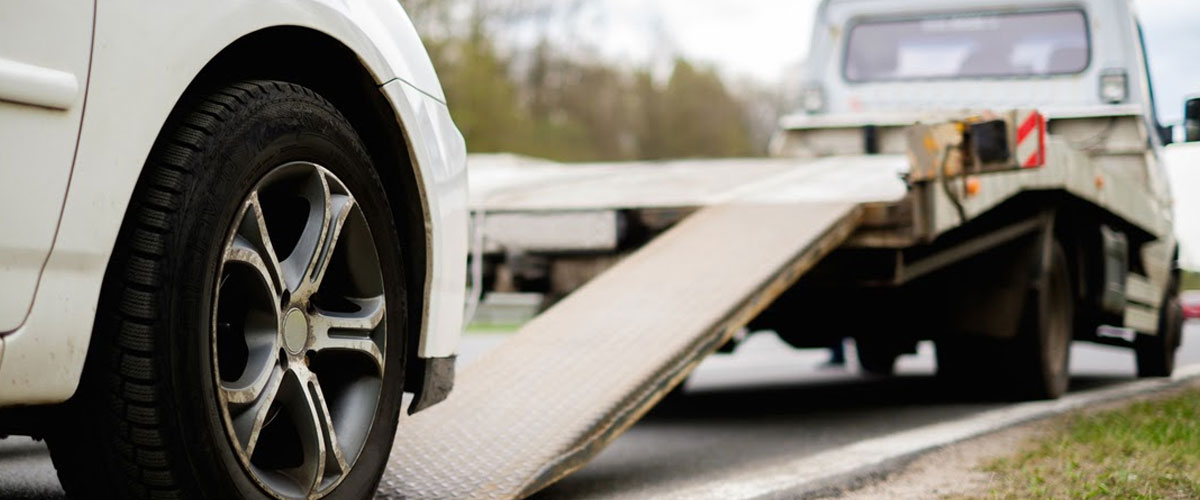How is Towing Capacity Calculated?
Author: Carasel Date Posted:17 January 2023

When looking to purchase new vehicle you need to think about whether it not you plan on towing anything with the vehicle. For example, if you are planning on towing a heavy caravan, then you will need a vehicle that has the ability to tow heavy trailers. In order to do this a lot of people make use of manufacturer specifications when looking at the towing specifications of a vehicle.
What is a Towing Capacity?
The maximum towing weight your vehicle can safely tow is called the Maximum Towing Capacity. This, however varies depending on how the vehicle is constructed, how much the vehicle weighs and how much you distribute your load you are looking at towing.
When looking at your manufacturer book it will declare the towing capacity of the vehicle, and this is based on one driver and no passengers in the vehicle. It is crucial that you add the weight of your passengers to the overall total weight as this can also impact the way the vehicle and tow vehicle drives on the road.
Towing Terms You Need to Know
Before heading off you need to make sure you fully understand "how the towing capacity is calculated". Below are some common terms you need to know:
- Towing Capacity: The maximum weight your vehicle can pull safely
- GVWR (Gross Vehicle Weight Rating): The maximum weight the vehicle can hold when it is parked.
- GTW(Gross Trailer Weight): The total weight of your trailer/caravan including the items inside it or on it.
- GCVWR(Gross Combined Vehicle Weight Rating): The maximum amount that is recommended for the combined vehicle and trailer to tow.
- GAWR (Gross Axle Weight Rating): The amount of weight that the axle's on the vehicle can support. It will be different from the front to the back.
- Tongue Weight: Measures how much force is placed on the trailer hitch while it is driving, hauling the trailer/caravan
- Curb Weight: The weight of the tow vehicle when it is full of fuel, gas and any additional fluids like water when driving.
- Dry Weight: The weight of the tow vehicle when it is empty - no fuel, cargo etc.
- Payload: The maximum weight that a vehicle can support in the cabin.
How is Towing Capacity Calculated?
There are three basic steps that you need to calculate your towing capacity with.
1. Calculate GCVWR
To work out your vehicles towing capability, you will be needing to know the total GCVWR of the vehicle and trailer you plan on towing. In addition to this you need to know the weight of the cargo that will go inside the vehicle and the trailer. This also includes the weight if all passengers also.
2. Calculate Curb Weight
Next you need to calculate the curb weight. This is the weight of the tow vehicle when it’s full of fuel and any additional liquids like water while you are driving. This is different from the GVWR (how much weight the vehicle can carry)
3. Calculate Final Towing Capacity
To calculate the towing capacity, subtract the weight from the GCVWR. Manufacturers usually emphasise that the weight should never exceed your vehicles towing capacity. Generally, a good rule to follow is never come within 10% of that sum. This gives you a small margin of error should your calculations be slightly out and ensures you are towing a weight that will be safe.
Can A Towing Capacity Be Increased?
You can increase your towing capacity by using several pieces of trailer towing equipment accessories. Towing accessories that match your present tow grade are best. They are lower rated equipment that limits the towing capacity. However, just be mindful that you don't surpass the capacity of your towing setup's lowest rated component.
Equipment You Will Need For Trailer Towing
Trailer Hitch Receiver
Trailer hitch receivers are attached to the underside of the vehicle and include a receiver opening of 1-1/4" x 1-1/4" or 2" x 2". The trailer hitch attachment points should line up with the existing holes in the frame of the vehicle. 2-1/2" x 2-1/2" receiver openings can also be used for heavy duty applications.
Ball Mount
As the ball mount provides a tight connection to the tow vehicle and trailer, selecting the right one is vital for safe towing. They come in four sizes: 1 1/4", 2", 2 1/2" & 3". You can purchase either standard or adjustable ball mounts.
Pin & Clip
The Pin & Clip are most used to hold the trailer hitch receiver and ball mount together. However, they can be easily removed so many people choose to use a hitch lock to prevent theft occurring.
Trailer Hitch Ball
Trailer Hitch Balls come in three common sizes including 1-7/8", 2" & 2-5/16". The size you choose should match up with the size of the coupler on your trailer to make for a secure fit.
Wiring Harness
By Law, all vehicles that tow a trailer must have a wiring harness to help power to the trailer lights, This allows brake lights, running lights and indicators to operate correctly.
Weight Distribution Hitch
It is vitally important not to overlook the necessity of a weight distribution hitch. This will more evenly disperse the weight across the trailer axles and the tow vehicle axles. It can additionally help prevent the trailer from swaying and make for a smoother, safer ride.
Get all the Equipment you need to Tow Safely.
Carasel Towbars have two Sydney based locations that you can either call or visit to ask any questions you may have regarding towing with your vehicle. Should you need a towbar, towbar service or replacement leads our friendly team can cater for all this and much more. Come fast and have a chat today!





